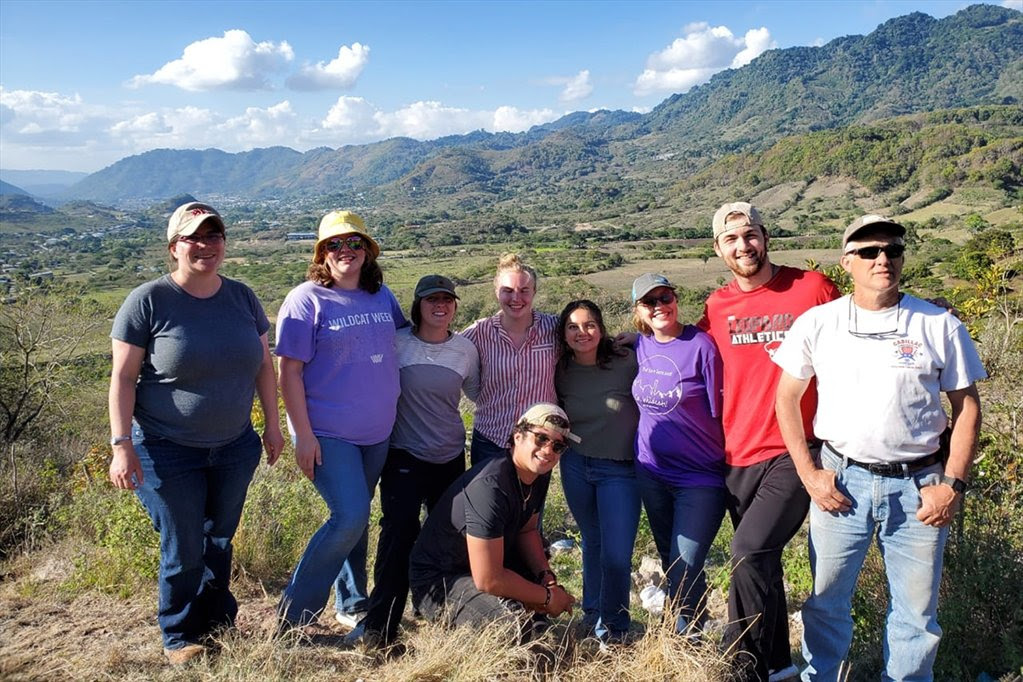A group of students and staff traveled to Jinotega, Nicaragua for three weeks over the summer to install bio-sand water filters, dig sanitary composting latrines and tour local facilities.
The group was from the Department of Agricultural and Environmental Sciences and Wildcat Academics on Mission (WAM), an initiative of the Halbert Center for Missions.
Dr. Jim Carpenter and Dr. Kendra Jernigan, associate professors in the AES department, partnered with Mision Para Cristo in Jinotega, Nicaragua and traveled with the students. Students also completed journals, noted local flora and fauna, spent time with farmers and observed agricultural techniques.
Carpenter said the purpose of the trip was to provide students the opportunity to see agriculture and environmental issues in a different setting than they are used to while also serving some of the people’s needs.
“This was my first trip to Nicaragua and we were able to get to know staff at Mision para Cristo well as well as begin to build a relationship with them,” Carpenter said.
During the three-week trip, the team completed two service projects.
“During the first week, we built bio-sand filters, which helped roughly 120 people gain access to clean water,and prior to getting these filters, the people drank raw water from the river or other sources,” Carpenter said. “In the second week, we built composting toilets for two families that had no toilets, and it was extremely rewarding seeing the reactions in the people we helped.”
While on their trip, the students worked hard to help the Nicaraguan people and grew in their faith.
“What may have impacted the students the most was our visit to the city dump,” Carpenter said. “To see the nauseating conditions there, the fire, smoke, smell, vultures and then to see the people living on the edge of the dump scavenging through the refuse for things to salvage for sale, was the most eye-opening part.”
Hannah Valvano, senior agribusiness major from Rockport, Massachusetts was one of the students on the trip and said she gained a new perspective while visiting the third-world country.
“It was interesting to see how different but similar a third-world country is to America because you get the same types of people who are happy with their way of living because they do not know anything different,” Valvano said. “It was refreshing to meet those who are not as materialistic contrary to the amounts of consumerism in America.”
WAM provides students with course credit coupled with a short-term mission opportunity and are fully funded by donors, allowing students to participate without needing to raise additional money.

